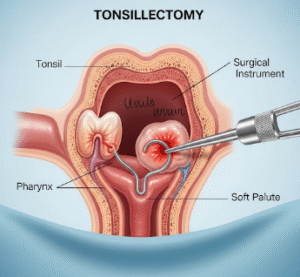What it is
Irregular menstruation refers to cycles that are shorter, longer, heavier, or lighter than the normal monthly rhythm. A typical cycle lasts 21–35 days, and anything outside this range is considered irregular.
✔️ Types: Skipped periods, very heavy or very light bleeding, prolonged cycles, or frequent cycles.
✔️ Causes: Can be hormonal, lifestyle-related, or linked to underlying medical conditions.
✔️ Management in Korea: Involves thorough diagnosis, lifestyle counseling, and treatment options tailored to the cause.
➡️ In Korea, women commonly seek help for irregular cycles at gynecology clinics and women’s health centers, which use both Western medicine and, in some cases, traditional Korean medicine for comprehensive care.
Why it’s done
Managing irregular menstruation is important because it:
🔹 Restores hormonal balance and improves quality of life.
🔹 Prevents complications such as infertility or anemia.
🔹 Detects hidden conditions like polycystic ovary syndrome (PCOS), thyroid issues, or endometriosis.
🔹 Improves mental health by reducing anxiety about unpredictable cycles.
🔹 Supports fertility planning for women trying to conceive.
💡 Highlight: Ignoring irregular menstruation may mask serious health issues, which is why timely management is essential.
Alternatives
Apart from standard medical management, there are different approaches women can try in Korea:
➡️ Lifestyle changes – diet, stress reduction, and exercise.
➡️ Herbal and traditional Korean medicine – acupuncture and herbal remedies for cycle regulation.
➡️ Self-tracking apps – helpful for monitoring cycles but not a substitute for medical care.
➡️ Supplements – such as folic acid, iron, or vitamin D to support reproductive health.
⚠️ Note: While lifestyle adjustments may help mild cases, persistent irregularities require professional evaluation.
Preparation
Before seeking treatment for irregular menstruation in Korea, preparation usually includes:
✔️ Tracking cycle history – dates, flow, and symptoms.
✔️ Listing symptoms – such as cramps, acne, mood swings, or weight changes.
✔️ Medical history – including thyroid disease, PCOS, diabetes, or family history of reproductive disorders.
✔️ Lifestyle review – diet, exercise, stress, smoking, and alcohol habits.
✔️ Fertility goals – whether pregnancy is desired soon or not.
💡 Tip: Many Korean clinics recommend bringing cycle-tracking records from an app or diary to help with diagnosis.
How it’s done
Management of irregular menstruation in Korea generally follows a structured process:
- Consultation and history-taking → Doctor asks about menstrual patterns, lifestyle, and health issues.
- Physical exam → Pelvic examination may be done to check for abnormalities.
- Diagnostic tests → Blood tests for hormones (thyroid, prolactin, FSH, LH), pelvic ultrasound for ovarian or uterine issues.
- Treatment planning → Options vary depending on the cause:
- Hormonal treatments: Birth control pills, patches, or IUDs to regulate cycles.
- Medications for PCOS or thyroid conditions.
- Nutritional supplements for anemia or deficiencies.
- Lifestyle guidance – weight management, stress reduction, improved sleep.
- Fertility-focused treatments if pregnancy is desired.
💡 Highlight: Korean clinics often combine modern gynecology with traditional approaches, offering both medical and holistic solutions.
Recovery
Recovery depends on the underlying cause and treatment chosen:
✔️ Short-term improvements may be seen within 1–3 months with medication.
✔️ Long-term regulation often requires continuous management.
✔️ Lifestyle changes (diet, exercise, stress relief) play a big role in maintaining regular cycles.
✔️ Fertility outcomes improve when underlying conditions are treated early.
When to revisit a doctor:
➡️ Periods stop for more than 3 months (not due to pregnancy).
➡️ Bleeding is excessively heavy or prolonged.
➡️ Severe cramps interfere with daily life.
➡️ Signs of hormonal imbalance such as excessive hair growth, acne, or weight gain.
💡 Important: Korean healthcare emphasizes follow-up care to track treatment effectiveness and adjust as needed.
Treatment option in Korea
Korea provides comprehensive and advanced care for irregular menstruation:
⭐ Gynecology clinics and university hospitals with state-of-the-art diagnostic tools.
⭐ Fertility centers for women seeking pregnancy support.
⭐ Integration of Western and traditional Korean medicine, giving patients more options.
⭐ Affordable consultation and testing compared to many Western countries.
⭐ Multilingual support for foreign patients in major hospitals.
💡 Highlight: Korea’s healthcare system ensures personalized, effective, and affordable care for irregular menstruation management.
Key Highlights
✔️ Irregular menstruation can signal deeper health issues like PCOS or thyroid problems.
✔️ Comprehensive diagnosis with lab tests, imaging, and lifestyle review.
✔️ Treatment options include medication, lifestyle changes, and traditional Korean medicine.
✔️ Fertility outcomes improve with timely management.
✔️ Korean clinics offer advanced, affordable, and multilingual care.













